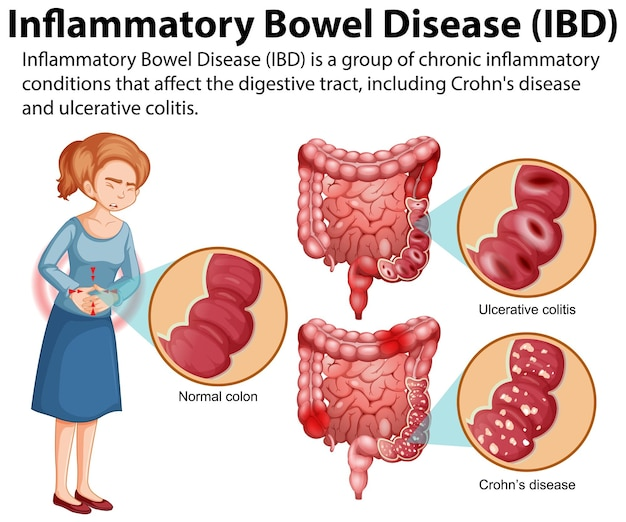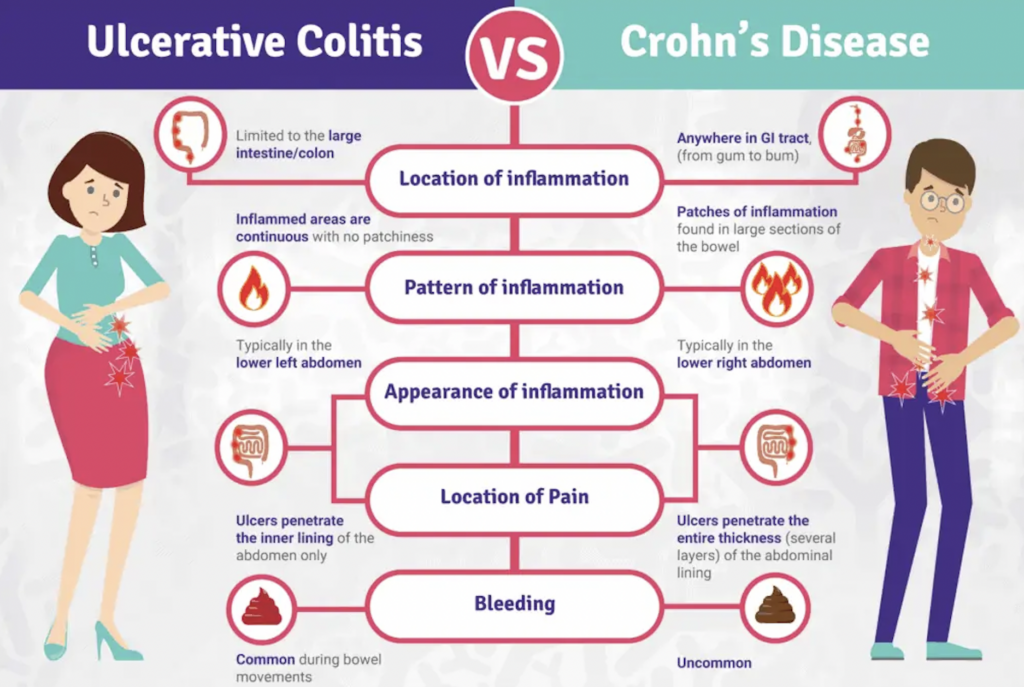


Ulcerative Colitis & Crohn’s Disease
IBD stands for Inflammatory Bowel Disease, which includes:
These are chronic conditions caused by an overactive immune system, leading to long-term inflammation.
Common symptoms:
Crohn’s Disease
Can affect any part of the digestive tract – from mouth to anus, most commonly the small intestine and
colon.
Extraintestinal symptoms (outside the gut):
📋 In cases of narrowing, your doctor may recommend a low residue diet – soft, easy-to-digest foods.
Ulcerative Colitis (UC)
Affects only the large intestine (colon) and rectum. Inflammation starts from the rectum and spreads
upward.
Extraintestinal symptoms may also occur, similar to Crohn’s.

IBD needs long-term treatment and regular checkups.
Medications help to:
Types of medicines:
If a treatment stops working, it may be switched this is common and manageable.
Sometimes surgery may be considered in specific clinical scenarios
sanghamitragastroenterology@gmail.com
KGH: Pentakota Complex, Maharanipeta
MVP: MIG-55, Sector 5, MVP Colony